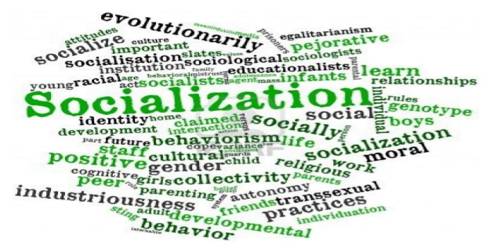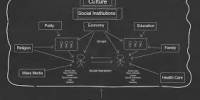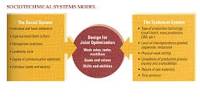Day-care of Socialization:
Socialization is a process by which culture is transmitted to the younger generation and men learn the rules and practices of social groups to which they belong. It is known as the process of inducting the individual into the social world. It is the means by which human infants begin to acquire the skills necessary to perform as functioning members of their society. Culture is transmitted through the communication they have with one another and communication thus comes to be the essence of the process of cultural transmission. The term socialization refers to the process of interaction through which the growing individual learns the habits, attitudes, values, and beliefs of the social group into which he has been born. In a society, there exists a number of agencies to socialize the child.
Day-care:
Social Development continues throughout childhood and into adulthood. Learning what is right and wrong, what is acceptable or unacceptable, is an important part of socialization. Of course, societies and cultures vary so a child needs to learn to adapt to their own environment first.
A family’s decision to have a parent stay at home or not determines in part how the child will be socialized. Today, however, the family’s importance in the child’s life is changing. In a daycare setting, the child is exposed daily too many other children and learns the important skills of sharing and playing together. The family no longer necessarily conforms to the stereotypical nuclear family with two parents and two or more dependent children. Also, children in daycare are likely to be exposed to and learn about people from different cultures, ethnicities, and socioeconomic backgrounds. Fewer families are consists of a working father, full-time homemaker mother, and at least one child. There are more and more single-parent families, where mothers with children under 6 years old are working. More and more children are receiving their early and primary care from others in addition to their parents. For these children, daycare is an important agent of socialization. The day-care are informal arrangements at the home of a neighbor, large nurseries run by schools, churches, charities, corporations, and occasionally employers.
High-quality daycare centers offer children the following benefits:
- Teach children how to share and take turns.
- Help hone communication skills.
- Teach problem-solving, compromise and conflict-resolution techniques.
- Encourage children to demonstrate cooperation, inclusion and compassion.
- Give children time to adjust to school-like schedules and routines.
Information Source:
















